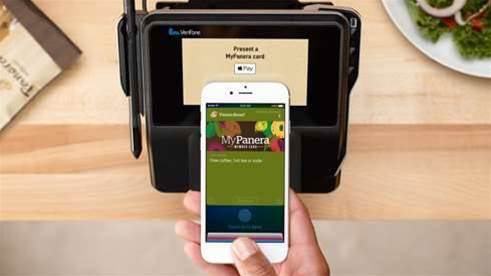Supermarket giant Coles and Australia's retail lobby have lent their voice to the banking industry's fight against Apple Pay, arguing Apple is limiting consumer choice by locking down the NFC chip on iPhones so it can only be used by its own payments platform.

In July, three of Australia's big four banks alongside Bendigo and Adelaide Bank went to the ACCC to ask for permission to form a cartel in order to strong-arm Apple into opening up access to its near-field communication chips.
They argued they were unable to offer services on iOS like they do on Android because of Apple's walled NFC garden - the chip is only available to its own Apple Pay mobile payments platform - which limited customer choice, transparency, and security.
They asked for interim approval of their cartel demands - which the ACCC this month denied - ahead of a longer term decision expected in October.
Apple has said opening up NFC access would compromise the security of its devices, and claimed Apple Pay was an underdog that did not represent a threat to the banks.
But supermarket giant Coles and the Australian Retailers' Association have now backed the banks' argument in pursuit of greater customer choice and industry innovation.
Coles said its investment in NFC technology so far - which includes NFC-equipped pinpad terminals and pay tags for mobile phones - has been well received by customers, which it said proves the case for tailored, cross-platform solutions.
"[This] should be the driver for customer choice and not a technical lockout that many consumers may not have realised would be imposed when they purchased their mobile device," Coles argued in its submission to the ACCC inquiry.
"It is important to recognise that the industry has collectively made a very significant investment in payments technologies like NFC, with an open and inclusive approach aimed at continually improving the experience for all customers."
The Australian Retailers Association, the peak industry body, argued mobile payments services needed to be available across both iOS and Android in order to have any chance of success.
"Indeed, most apps or services are developed for both platforms, since both provide similar levels of access to similar kinds of mobile hardware," the ARA wrote.
"For example, Google Maps has been successful on both iOS and Android because it can access the GPS functionality of both platforms. This is not the case when it comes to accessing the near field communication (NFC) chip on Apple’s iOS."
NFC technology is "essential" for mobile payment technologies, the ARA argued, meaning the potential for innovation in the area was limited so long as Apple continued to close off its NFC chips.
"A number of banks and merchants overseas have tried to develop mobile wallets and payment services using alternative technologies, but none have been successful," the ARA wrote.
"We would like to see all customers have a choice of mobile wallets and payment services using the mobile phone they already have and the bank debit and credit cards and loyalty cards they already use."
The retail lobby said it hoped the collective force of its members and the four Australian banks would prompt Apple to change its position, even though similar overseas efforts have failed.





_(20).jpg&h=140&w=231&c=1&s=0)





 iTnews Executive Retreat - Security Leaders Edition
iTnews Executive Retreat - Security Leaders Edition
 iTnews Benchmark Awards 2026
iTnews Benchmark Awards 2026
 iTnews Cloud Covered Breakfast Summit
iTnews Cloud Covered Breakfast Summit
 The 2026 iAwards
The 2026 iAwards











_(1).jpg&h=140&w=231&c=1&s=0)



